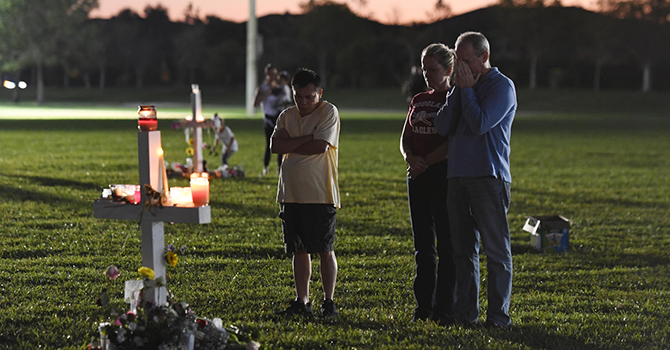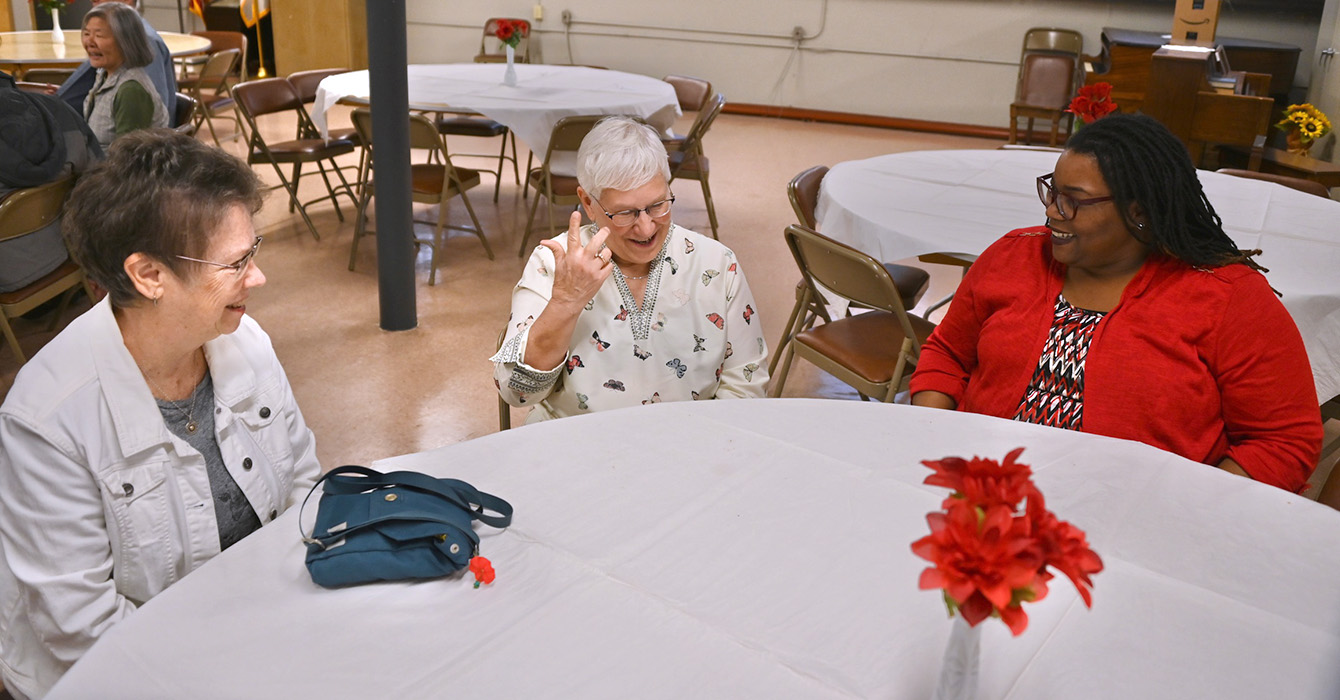In my 10 years of ministry, I’ve never heard stories like the ones I’m hearing now. They are tales of heartbreak from those who feel as if they’ve lost friends, family members and even entire churches to conspiracy theories and political radicalization.
Adult children are pleading with their parents to stop endlessly doom scrolling; siblings are at each other’s throats because they can’t agree on whether to sign up elderly parents to receive COVID-19 vaccines; marriages are on the brink of collapse because one partner can’t let go of ridiculous theories about a “secret cabal of child-eating Democrats.” It is becoming clearer every day that we are experiencing a full-blown outbreak of disinformation.
Salacious conspiracy theories are nothing new, even if they feel new to us. Romans spread rumors of Christian cannibalism in the second century, and some Christians have long shared anti-Semitic tales of secret Jewish cabals that were plotting to take over the world.
As a pretext for persecution, these kinds of stories are sensational, infuriating and addictive by design. I’ve received emails from those who came to acknowledge that QAnon stories were false but nevertheless found it difficult to stop scanning message boards and sharing misinformation on social media. The online community of like-minded adherents has become a second family for some who are struggling through the isolation of the pandemic.
But what about the first families -- those sons, daughters, siblings, partners and friends who feel as if they are losing their loved ones? For many, frustration and exasperation may be intertwined with feelings of loss and abandonment. As Christian leaders, we must confront the dangerous lies of QAnon and other conspiracy theories while recognizing that they also wound those who don’t believe them.
We need to make spaces for those who are affected secondarily to vent and explore their grief. Some will need support groups. Others may require pastoral counseling.
Some relationships will be pushed beyond repair. Clergy need to walk the thin line between acknowledging that very real possibility to those seeking counsel and equipping them with the hope and the tools they need to help their loved ones.
Conservative media seeks to minimize the scope of the problem, while liberals struggle to respond with more than expressions of contempt. Christian leaders must take a different tack. As ridiculous as the stories may sound, ridicule is no treatment, and this virus is immune to even the most well-reasoned arguments. Debate only makes adherents more defensive, and mockery drives them deeper into isolation.
One approach for people trying to stay in relationship with those living in a conspiracy web comes from Adam Grant, an organizational psychologist at the Wharton School. He has used a process originally developed to treat substance abuse called “motivational interviewing,” which focuses on genuinely exploring with people the reasons behind their beliefs and helping them discover their own motivations to change.
The point is not to give answers but to ask questions and seek to connect on a personal level. Like holding up a mirror, asking questions without the threat of judgment can help people see their own thoughts and invite them to think critically about their beliefs. The point is not to win, convert or convince but simply to create a space that invites transparency and vulnerability.
Once trust is established, the opportunity slowly opens to talk about what lies behind those beliefs and the feelings those beliefs evoke within the listener. Arguing about facts only entrenches identities. Sharing stories, however, airs out wounds and interrogates how identities are formed and how they shape each individual’s interpretation of the facts.
This year, we’ve all been impressed by the courage of medical professionals who are willing to step into potentially dangerous situations to help very sick patients. Nearly all have become exhausted; some have gotten sick; others have been traumatized.
Maintaining relationships with those who are deeply embedded in conspiracy theories is perilous in a different way. Sometimes the vehemence of their opinions, the acidity of their words and the darkness of their stories are just too much. Feelings can be hurt, and relationships may be broken. Spiritual exhaustion ensues.
All of us have a point at which we need to step back, put up boundaries or even end relationships. That may be necessary, at least for a time. It’s a tragic thing when it feels as if our loved ones are lost, but it’s also important to set and enforce limits. That can include being unable to walk alongside them in this stage of their journey.
Ultimately, QAnon, like other conspiracy theories, is just a story. It is bleak and violent, and it finds hope in all the wrong places. Perhaps the church is so rife with this heresy because somewhere along the line we’ve forgotten how to tell our story -- the one where forgiveness, mercy and humility win the day. I once heard a wise man say something about how the church only dies when it is no longer interesting enough to justify its own existence.
The good news is that in our story, it’s never too late to start again.










